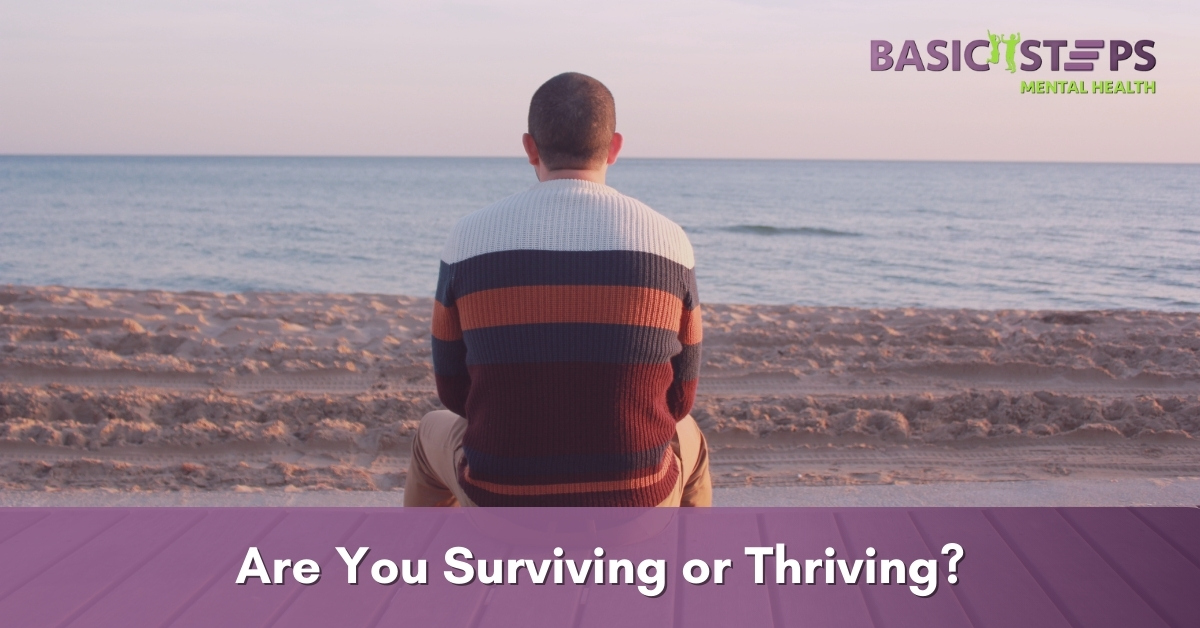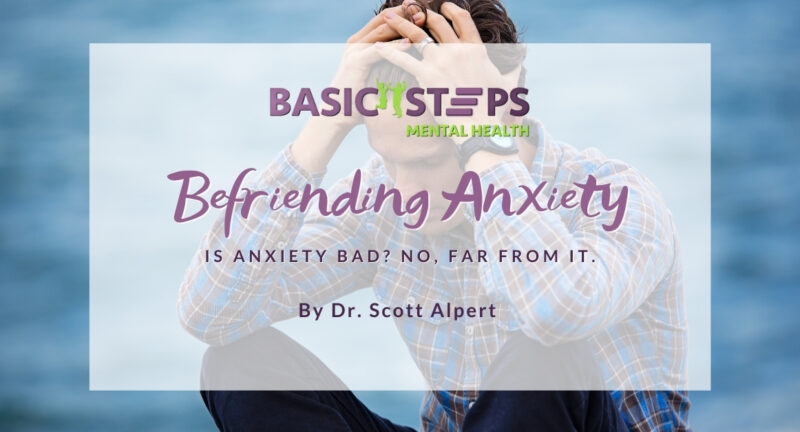
Are You Surviving or Thriving?
After 28 years in the industry, I often reassess myself. This is a periodic check-in to see how I am doing. Currently very happy but why? And honestly, the answer is staying active. When I have a purpose, I do well. But this is just me.
Recovery of any type is not a one size fits all. Each person is so unique that what works for one person will not for another. Thus, the personal check-in.
How are you doing? Are you surviving or thriving? In survival mode, we are just simply getting by. I have a past history of such bad depression that I couldn’t get out of bed for days. My comfort area had shifted from long hikes in the woods to my house, my room, and then to only my bed. This was when I didn’t shower, barely ate, and when I did eat it was junk food and nasty leftovers because they were easiest. This was when I was just surviving. And yes, even us therapists have mental health issues too.
In order to thrive, it isn’t flipping some miracle switch and sprinting from your room to run a marathon, it is sometimes literally getting up on your feet and deciding to take a step, then another, then another.
In graduate school, we were asked to create our own theory of healing. You would think that a school would hardwire into you their progression for you to repeat. Since we learned so much the most important thing was to discover what worked best for you. One approach they taught focuses on the future. If some miracle took place, then what would be happening in your life? Without a goal to work toward, I’d still be in that bed. That one is definitely included in what I practice.
My theory of therapy has at its core the relationship people have with themselves. We could move toward the goal, but how are we with ourselves in the process? Are we critical or are we compassionate? For example, if I were to make mistakes on my journey would I praise myself for the effort, and reframe the mistakes as growth opportunities, or simply beat myself up and tell myself that I was a loser and why bother.
Therefore, your relationship with yourself becomes the first step. Are you patient or impatient with yourself? Do you have expectations that are hard to meet, or do you set intentions and keep stepping down that path? Expectations generally have a due date, whereas intentions just take an ongoing effort to achieve.
With a goal in mind and an improved relationship with self, the rest is just techniques. Then it is important to know what is really bothering you. Is it an addiction? Then working on ceasing that behavior is what is really important. Is it depression? Then emotional tools need to be used. If it is in regards to your belief system, then the rules you operate under need to change. All of these don’t change on their own, you’ve got to put your effort into it.
The survival mode is disheartening, and many people get stuck there and feel it will go on forever. Sound familiar? This is why my healing strategy focuses mostly on emotions. I feel we are only as strong as our emotional make-up, but people mostly lack the know-how on processing through this.
What do you do if you are depressed or anxious? Diet, supplements, exercise, and a shopping spree take place on the physical level and won’t touch the emotions. It is nice to have a good meal, but a good meal won’t touch what is underneath the surface. What about positive thinking. Yes, our thoughts are important, but we can’t think our way out of an emotional wound, we need to process through it. The interesting thing is, a hug to self goes a much longer way.
Look at your relationships. Are they logical? Let’s face it, we are emotional beings and need to tend to these emotions or end up trapped on the bed. Here is where our comfort zone gets so small it is like a prison. Thinking it away, eating it away, won’t change things in the long run, befriending ourselves will.
What does thriving look like? What would it look like to you? How would life be if you were thriving? Imagine you are thriving right now and use all your senses to take it in. What is going on? Who is there with you? What are your feelings?
I went to a seminar years ago and the speaker asked us, “What brings you joy?” Well, at the time I didn’t even consider that emotion. I was just trying to get by. It was a good question though and one that is important to answer for yourself. What does bring you joy? It can be as simple as smelling flowers or stomping on a pinecone and feeling the crunch – ahh. Think about this and compile a list. Just the mere fact that you are focusing on joyful things can help your depression fade. If you are focused on the negatives, the negatives remain. Focusing on what is enjoyable in life and taking an active part in creating that can help you thrive!
Compassionate Care is Always Available
There are many more tools and strategies you can use in your pursuit of happiness. Here is where we come in. Contact us at Basic Steps Mental Health and let us support and educate you on this journey back to your loving heart center. Imagine living a heart-centered life, regardless of what is happening externally. We’d love to be of help.
For 25 years, Dr. Scott Alpert, the clinical director of Basic Steps Mental Health, has treated over 7,000 people with mental health and addiction problems, using a Psychological approach that mixes and matches ten of the top approaches used in the industry. We are here virtually and in-person to help you get through this COVID-19 pandemic and many other difficulties you may be experiencing.
May you have good mental health.
Related Posts
Motivation – A Deeper Cut
As the exploration continues on improving motivation, one thing that needs to be...
Befriending Anxiety
This is a subject I hold true to my heart. This is what brought me to therapy and...




